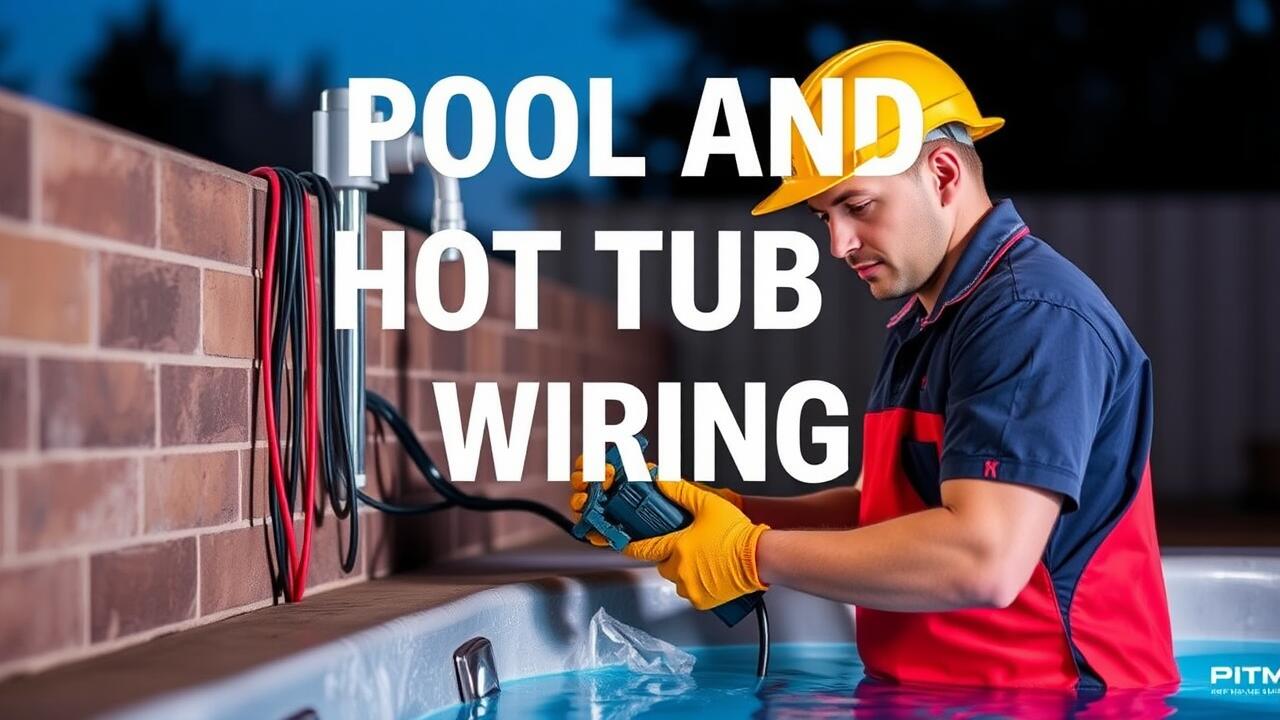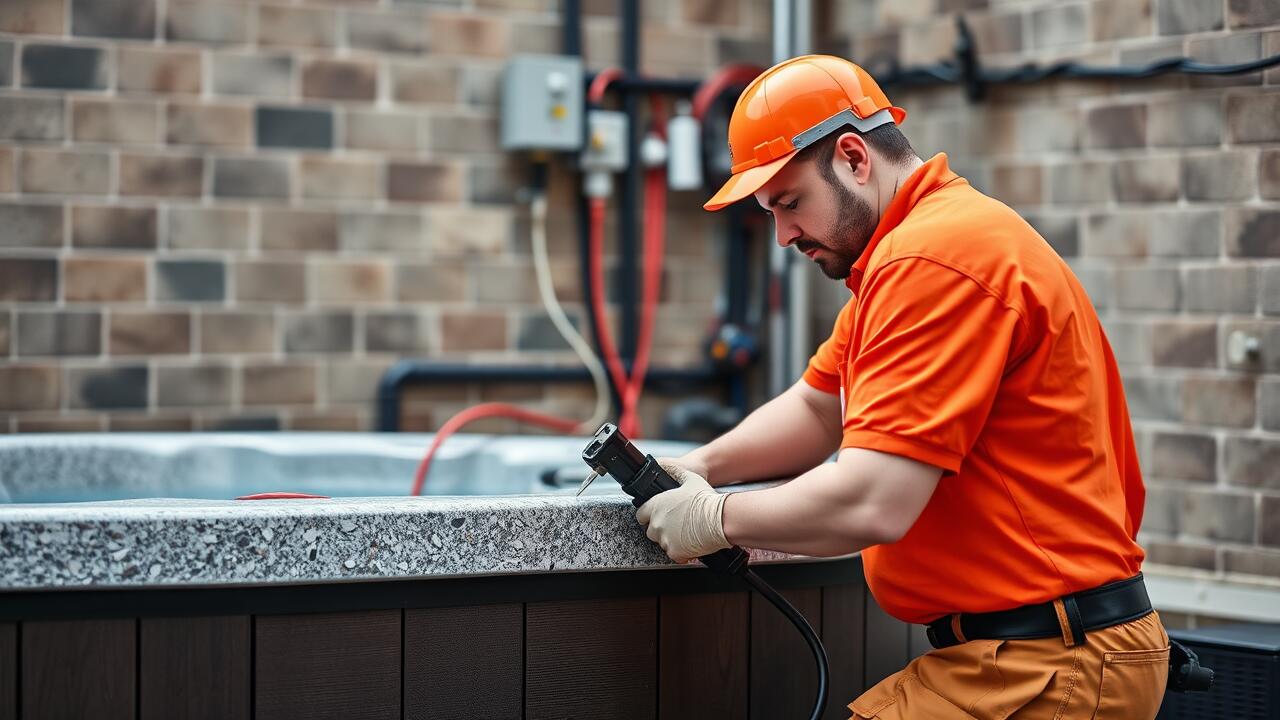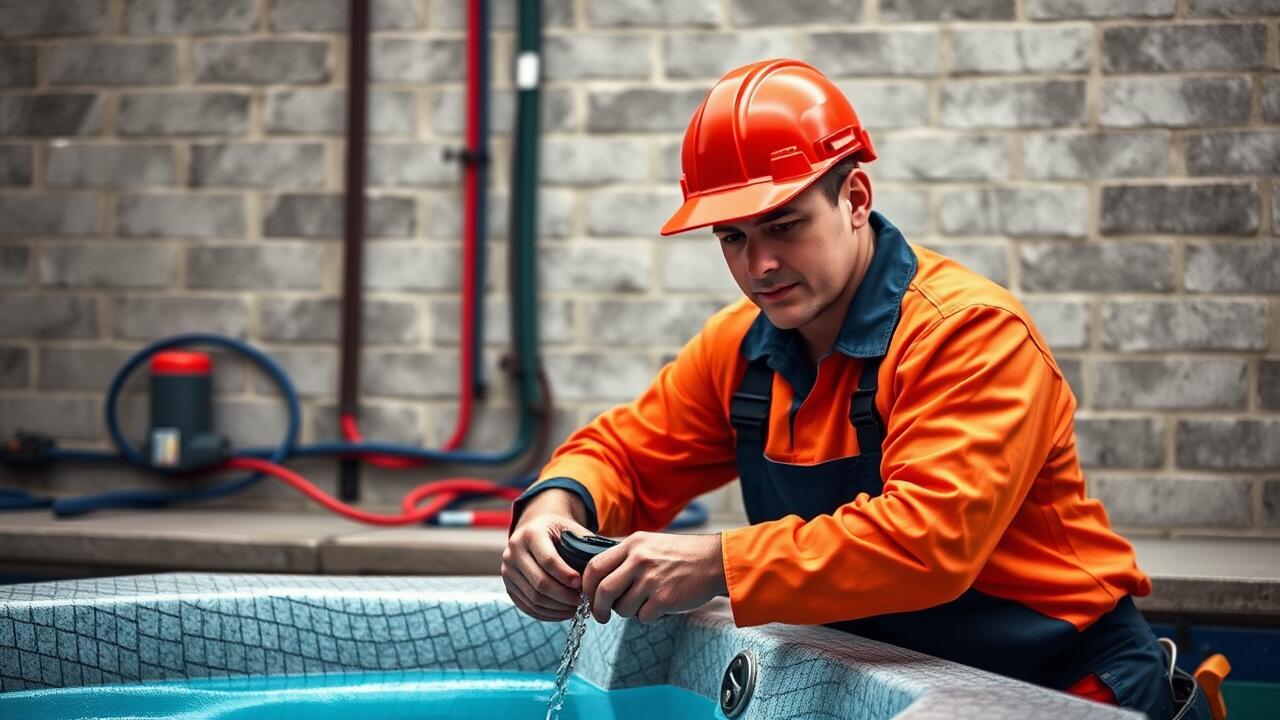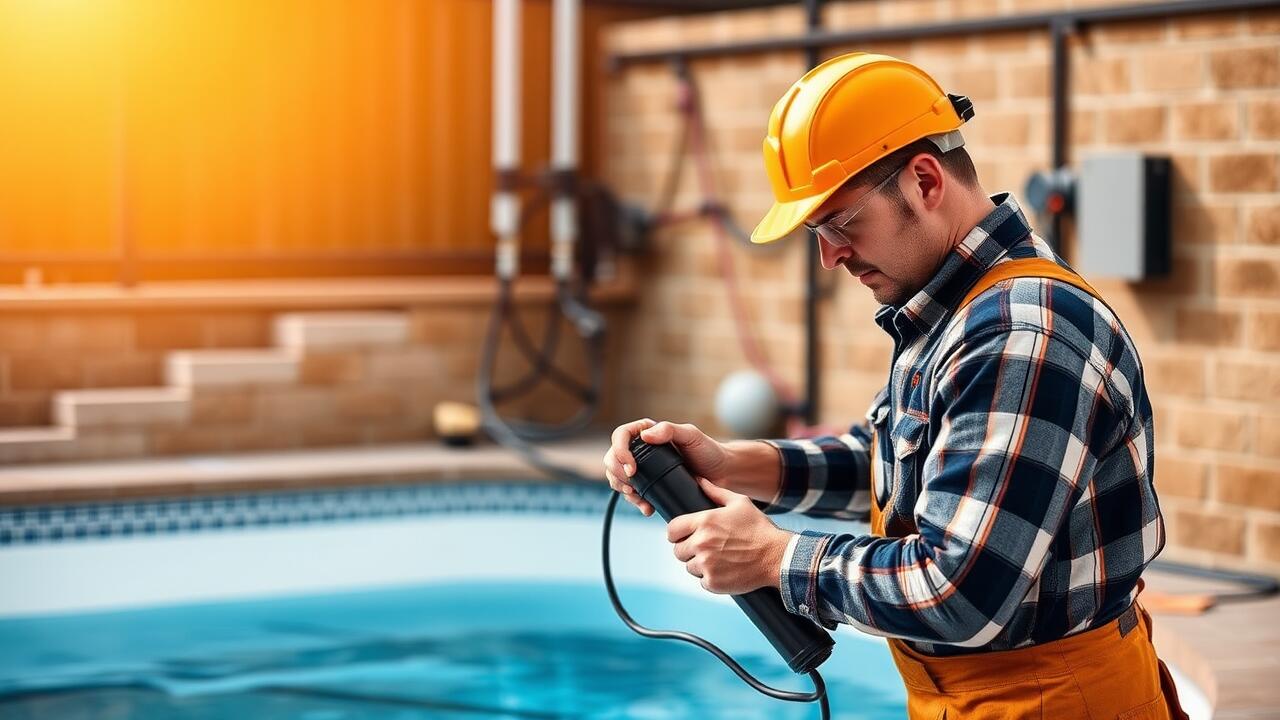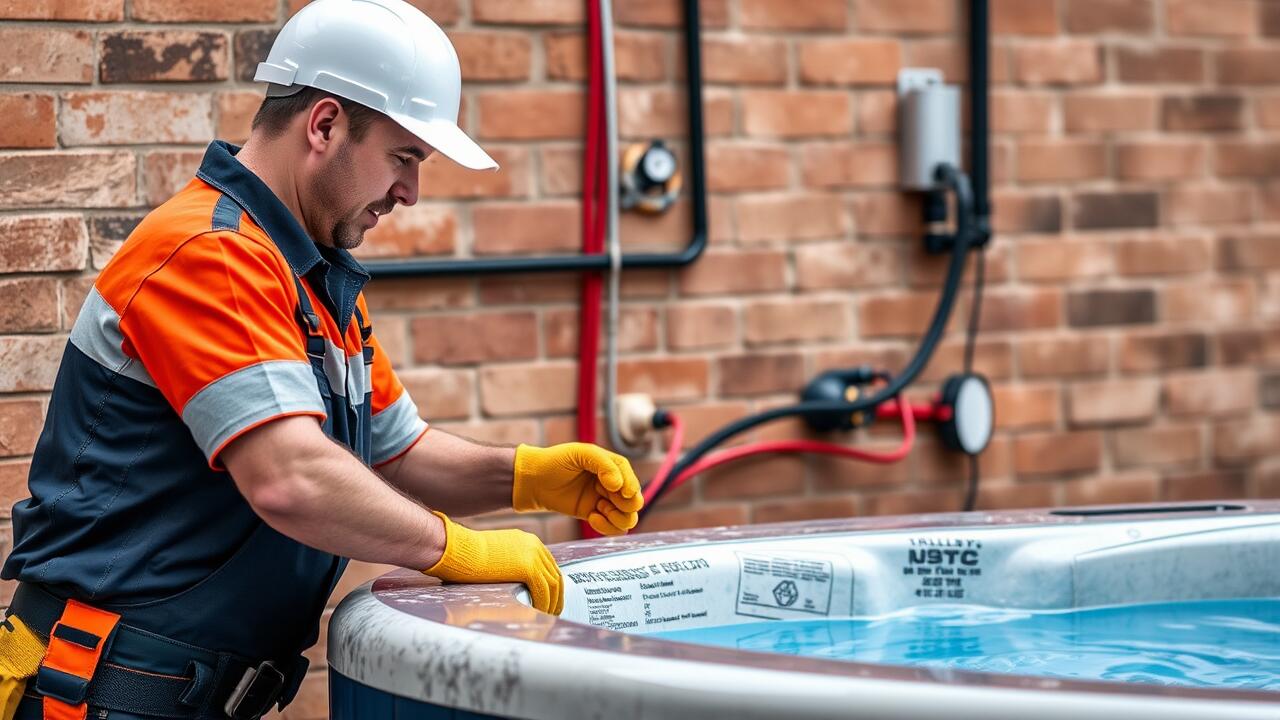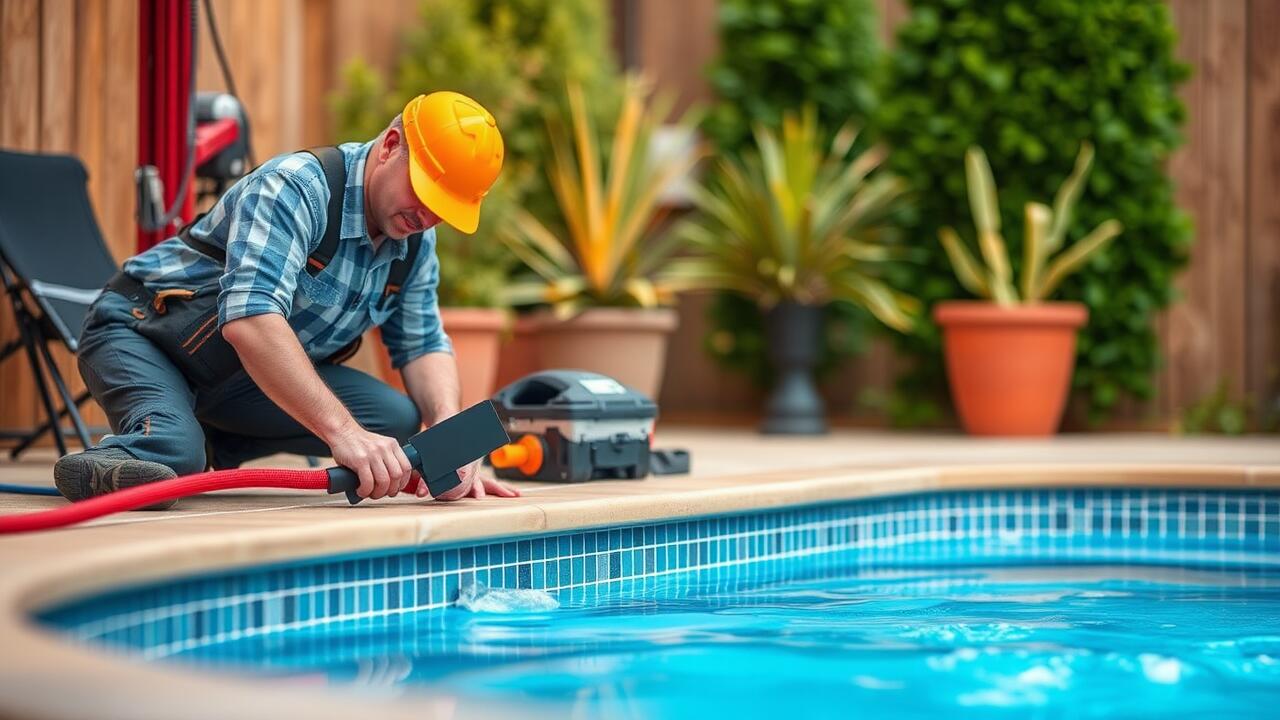
Grounding Systems for Pool Decks
Grounding systems are a critical component of any pool deck, designed to protect both people and equipment from electrical hazards. Proper grounding minimizes the risk of electric shock by creating a safe pathway for stray currents. This is especially important in areas where water and electricity can easily interact. Adhering to local codes and standards is essential in establishing an effective grounding system, ensuring that all aspects of the deck are properly connected and maintained to handle potential faults.
When discussing safety in relation to pool and hot tub installations, it’s vital to consider the role of bonding as well. Bonding connects various metal components of the pool and deck, preventing differences in voltage that could arise due to electrical faults. Pool and Hot Tub Wiring in Montrose, Houston, should follow best practices to ensure that all conductive surfaces, including ladders, rails, and metal features, are adequately bonded. This creates a uniform electrical field, significantly reducing the likelihood of shock incidents. Regular inspection and adherence to guidelines can contribute to a safe swimming environment for everyone.
Best Practices for Deck Grounding
When establishing grounding systems for pool decks, ensure that all conductive surfaces are properly bonded to prevent potential electrical hazards. Conductive materials like metal railings and pool ladders should be connected to the grounding system. The use of bonding jumpers is crucial in these instances to maintain electrical continuity and safety. In areas such as Greenspoint, Houston, adhering to local codes and regulations is essential for compliance.
Regularly inspecting ground connections can help avoid problems over time. Grounding electrodes should be examined to ensure they are intact and firmly connected. Areas prone to corrosion or wear may require more frequent checks. Utilizing professionals with expertise in Pool and Hot Tub Wiring in Greenspoint, Houston can enhance safety and ensure that the systems are functioning correctly. Being diligent about this routine helps in identifying issues before they escalate, ensuring a safer environment for all pool users.
Common Mistakes in Grounding and Bonding
One of the primary mistakes made in grounding and bonding systems is the inadequate connection between the various components. A loose or corroded connection can lead to significant safety hazards, as it compromises the effectiveness of the grounding system. Ensuring that all connections are tight and securely attached is essential. Regular checks and maintenance can help prevent these issues from arising, providing a safer environment for pool users.
Another common error involves the improper placement of bonding conductors. Failing to bond all metallic parts around the pool area, such as ladders or handrails, increases the risk of electrical shock. It's crucial to follow the National Electrical Code (NEC) guidelines for bonding to ensure all conductive materials are properly connected. Professionals specializing in Pool and Hot Tub Wiring in Montrose, Houston, are familiar with these requirements and can help homeowners avoid these pitfalls.
Avoiding Pitfalls in Pool Electrical Safety
Ensuring safety in pool electrical systems demands meticulous attention to common mistakes. Inadequate bonding can create dangerous conditions, leading to electrical shock hazards. Some pool owners may overlook the significance of connecting all metallic parts of the pool structure to a reliable grounding system. Properly bonding pool components, such as ladders, railings, and lighting fixtures, mitigates risks and enhances overall safety.
Regular inspections of the grounding and bonding systems are crucial to maintaining safety standards. Pool and Hot Tub Wiring in Houston should be performed by licensed electricians familiar with local electrical codes. This expertise ensures that installations comply with regulations and that potential hazards are identified and rectified promptly. Regular maintenance of these systems not only helps prevent accidents but also extends the life of the electrical components used in pool settings.
Inspections and Maintenance of Grounding and Bonding Systems
Regular inspections of grounding and bonding systems for pools are essential to ensure safety and compliance with electrical codes. These inspections should focus on verifying connections, checking for corrosion, and ensuring that all components are functioning effectively. It is crucial to conduct these evaluations at least annually, though more frequent checks may be necessary depending on environmental factors, such as exposure to moisture or chemicals. Property owners should be particularly vigilant after severe weather events, which could potentially disrupt the integrity of the system.
Maintenance of these systems involves cleaning and repairing any identified issues promptly to prevent hazards. It is also advisable to document all inspections and maintenance activities to maintain a clear record. When dealing with complex electrical installations, enlisting professional services specializing in Pool and Hot Tub Wiring in West University Place, Houston can provide peace of mind. Professionals can identify potential problems that may not be apparent to an untrained eye and ensure that grounding and bonding systems meet all safety requirements.
How to Ensure Compliance and Safety
Regular inspections of grounding and bonding systems are essential for ensuring compliance with electrical safety standards. An experienced electrician should assess the condition of these systems to verify that all connections remain secure and corrosion-free. During inspections, it is crucial to check the integrity of wires, grounding electrodes, and any bonding jumpers that connect metal components. Keeping records of these inspections can help in identifying any trends or recurring issues that may arise over time.
In addition to routine inspections, maintaining proper documentation can enhance safety compliance. This includes keeping track of installation dates, materials used, and any maintenance performed. Homeowners should familiarize themselves with local regulations governing pool and hot tub wiring in Montrose, Houston. Understanding these guidelines helps ensure that installations meet safety standards and reduces the risk of electrical hazards. Engaging with qualified professionals for both installation and maintenance fosters a safe environment for pool use.
FAQS
What is the purpose of grounding and bonding in pool installations?
Grounding and bonding are essential for preventing electric shock hazards and ensuring the safety of pool users. Grounding provides a path for electrical currents to safely dissipate into the earth, while bonding connects various metal components to minimize voltage differences.
What are the best practices for grounding a pool deck?
Best practices for grounding a pool deck include using a dedicated grounding electrode system, ensuring proper connections between all metal parts, and regularly inspecting the system for corrosion or damage.
What are some common mistakes made in grounding and bonding for pools?
Common mistakes include inadequate bonding of metal components, improper grounding techniques, neglecting regular inspections, and using substandard materials that may corrode over time.
How can I avoid pitfalls in pool electrical safety?
To avoid pitfalls, ensure compliance with local electrical codes, use a qualified electrician for installations, perform routine maintenance checks, and stay informed about the latest safety guidelines in pool electrical systems.
How often should the grounding and bonding systems be inspected?
Grounding and bonding systems should be inspected at least annually, or more frequently if the pool experiences heavy use or if there are changes in the electrical system or surrounding environment. Regular maintenance helps ensure ongoing safety and compliance.
